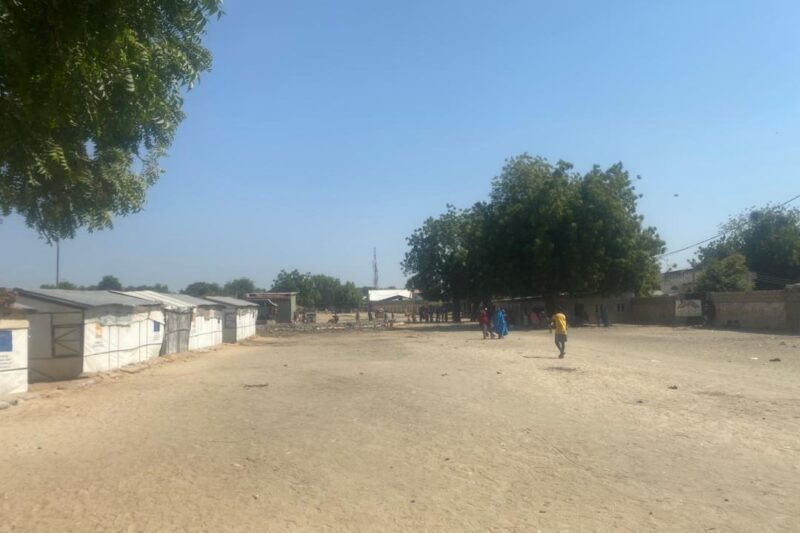Cost-of-living crisis hits cash-strapped Christians who say it will be a low-key festive season – in fact, many will not celebrate Christmas at all because they simply do not have the means.
It is going to be a low-cost and low-key Christmas for displaced Christians living in Borno State – if they celebrate the festive season at all.
They say the cost-of-living crisis has left them empty-handed. Although Christmas is one of the holiest days on the calendar as it celebrates the birth of Christ, they say they do not even have enough food every day – and there is certainly no money to splurge over the festive season.
John Orumba is the father of Habila John, a Civilian Joint Task Force (CJTF) member killed by bandits in Sokoto State. He was one of 300 security operatives who were deployed to the Nigeria’s northwest in February to help curb escalating banditry.
Orumba lives in an informal camp in the Wulari community in Maiduguri.
“I lost my son this year. I am still in mourning. What is there to prepare for when we are struggling to provide even one square meal a day for our families?
“My son was the breadwinner of our family and now he is gone. Since he died, things have turned sour for us. If he were alive, I know he would have made sure we celebrated Christmas, but it looks pretty grim this year.
“The only way I will be able to celebrate Christmas is if God provides. I will try to buy clothes and food for my family, but even that may be difficult,” he said.
“My son left behind a wife and 10 children. He took care of me and his family. Now, his children and I have to go out to beg for money and food. I am old, but that does not stop me from fending for my son’s family.
“We will try to celebrate the festivities. But we can only do that with what we have. There will be nothing special because we just can’t afford it.
“We have been staying in this camp for a long time and we are going through a lot. The hardship we face here is beyond anyone’s imagination. Sometimes, we have only water to drink. We often go for days without eating.
“When my son was alive, by this time, he would have bought at least clothes and a pair of shoes for us all and for himself. He would even buy raw meat for soup on Christmas Day. I tried to contribute, but not as frequently,” Orumba said.
Lydia Habila said: “I’m Habila’s widow. He was killed in Sokoto in northwestern Nigeria when they went to assist security personnel fight the bandits.
“Since his death, we have been totally dependent on the Almighty. And, it is sad, but we have no means of income to celebrate Christmas. I feel frustrated because I want to bring in money but I do not have the means to start a small business. So, we are definitely not prepared for any festivities this Christmas. In fact, I do not think we will be able to celebrate at all.
“When my husband was alive, he made sure we celebrated – even if all we ate was just a bowl of rice. He would buy clothes for me and the children.
“On behalf of other widows staying in internally displaced persons’ camps, I am begging the Borno State government for help. We badly need the government to intervene to ease our hardship. We are in dire need of assistance. It is going to be a very low-key Christmas.”
Jummai Moses’ husband was ill this year. He died just two weeks ago.
“I am a widow with five children, two girls and three boys. My husband died two weeks ago and left me with this little one. I gave birth to this baby early in November. My husband passed away two weeks after we were discharged from the hospital.
“I have not prepared anything to celebrate Christmas. I am still grieving. I have not even thought about Christmas. I’m sorry to say we will not be celebrating.
“This year, neither my husband nor I farmed. He was sick and I was pregnant. Had it been different, we would have had plenty to eat. But even before my husband died, we were struggling to feed the family.
“The little food we had was stolen when my husband and I were in hospital.
“When he was alive, we always celebrated Christmas. Most times my husband was not around because he was on the farm. But he always sent us money so that I could buy clothes and food for me and the children. But those days are over.”
AYSHA MUSTAPHA KOLOMI







